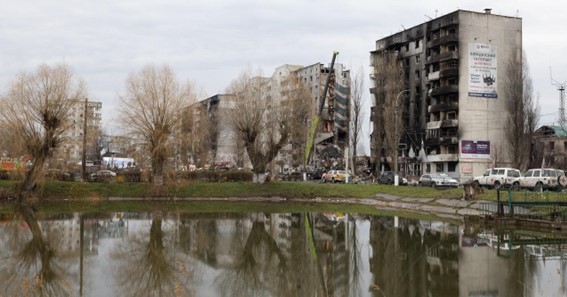Did you know that if your real estate investment property remains unoccupied for as little as four days, your property insurance policy may no longer cover it? Or that the coverage you pay for through your condo fees purchased by your condo association can still leave you exposed to liability?
As a homeowner, you understand the importance of protecting your house with property insurance, but when you buy property to generate income, not having the right coverage can cost you your investment and the consistent income you are likely relying on to pay the mortgage. As your real estate lawyer will tell you, properly ensuring an investment property requires more than the minimum coverages needed to complete the purchase.
click here – 5 Ways to Maintain Better Finances at Your Small Business
If you own a real estate investment property, read on to learn about the insurance coverages landlords should not be without.
Property Insurance for Short-Term Rentals
This type of policy is similar to your homeowner’s policy in that it can cover your property, structures and contents (possibly only yours alone, not the tenant’s) in case of damage or destruction due to fire, flooding, ice storms, theft, vandalism, etc.
You can also add rent protection coverage in case a peril makes your rental unit uninhabitable and, therefore, unrentable until it’s repaired.
Many property insurance policies exclude coverage if the property has been emptying for a specific amount of time – usually 30 days, but some policies will void coverage in as little as four days. This can easily happen when you’re between tenants or during renovations.
Check your policy to understand how your coverage works. You may need to add coverage with a vacant or unoccupied property insurance policy.
Landlord Liability Insurance
This can be a group of bundled coverages or a stand-alone policy, but landlord insurance protects you from liability in several situations, including:
- Your tenant, tenant’s guest or a member of the public is injured on your property.
- Personal injury or property damage results from an accident, like a fire, that started on your property.
- A tenant defaults on rent payments, or your property remains unrented.
Depending on your plan, you may also need a specific condo insurance policy or coverage. If insurance is included as part of your condo fees to the condominium corporation or association, make sure you know exactly what’s covered. The policy usually only covers common areas such as:
- Hallways
- Elevators
- Parking garages
- Lobbies
- Stairwells
- Gyms and other recreational facilities
- Party rooms
click here – How Do Contract Bonds Work?
Also, coverage usually only applies to what’s behind the interior facing walls of your condo unit and nothing inside the unit like furniture, appliances, fixtures, etc. So, if a leaky pipe damages the interior of your unit, it might not be insured. As with property insurance, however, coverage generally does not extend to the tenant’s property.
A final point about the condo’s insurance policy, if you or your tenant damage an area covered by the condo’s insurance policy, the insurance company may decide to sue you for the deductible or for costs that exceed the policy limit.
This may leave you liable for damage to a party room, for example, if you, your tenant or their guests accidentally start a fire. Having landlord or condo insurance, however, could protect you from such a claim.
